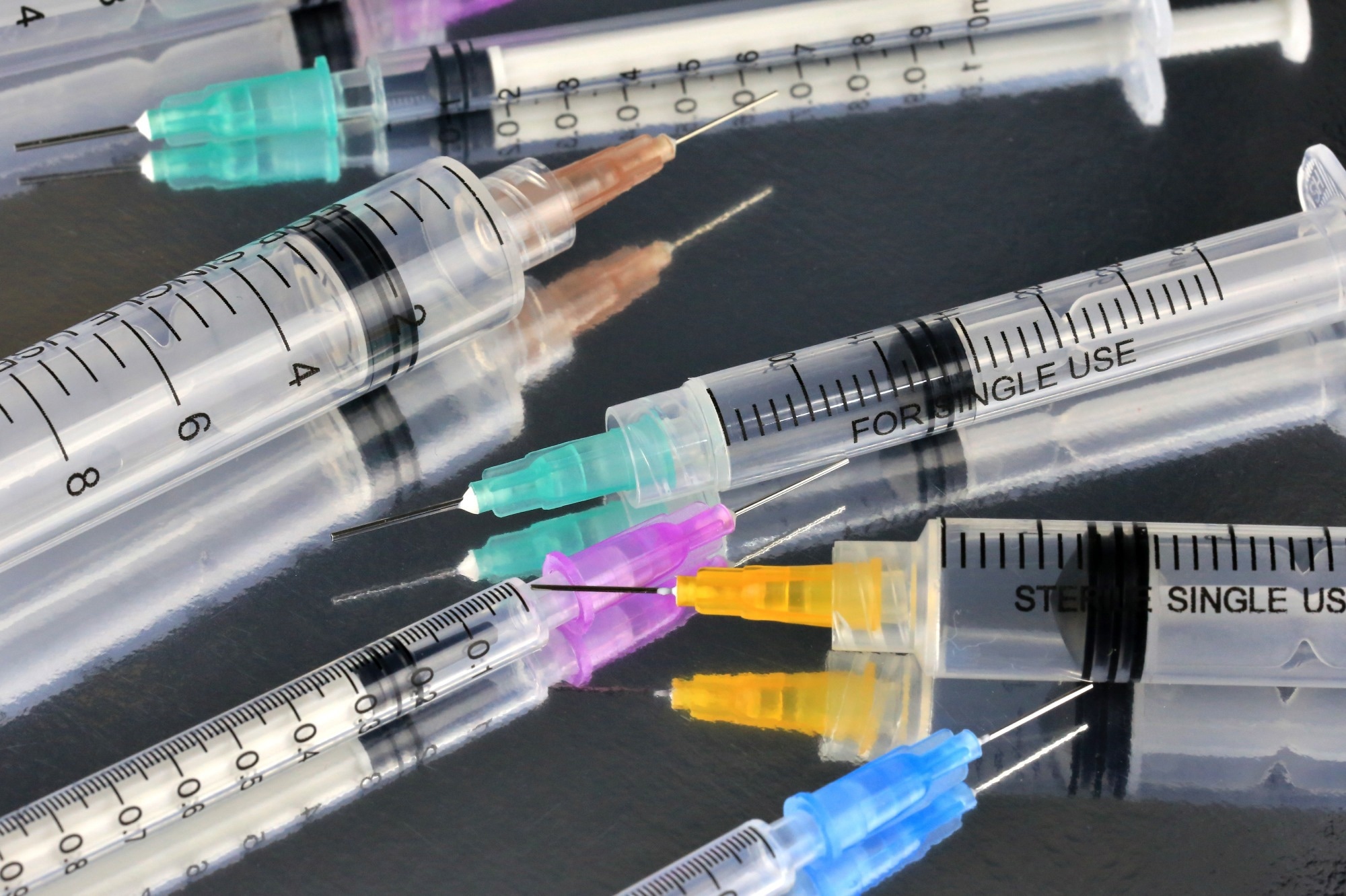In a recent case report published in The Lancet Infectious Diseases, researchers described a case of a 62-year-old male who received 217 vaccinations against severe acute respiratory syndrome coronavirus 2 (SARS-CoV-2) in 29 months and examined his immunological responses. They found that hyper-vaccination did not cause adverse events or significantly affect the quality of adaptive immune responses while resulting in increased T-cells and spike-specific antibodies.
 Study: Adaptive immune responses are larger and functionally preserved in a hypervaccinated individual. Image Credit: Douglas Sacha / Shutterstock
Study: Adaptive immune responses are larger and functionally preserved in a hypervaccinated individual. Image Credit: Douglas Sacha / Shutterstock
Background
Booster vaccinations may potentially amplify immune responses, while persistent antigen exposure may induce immune tolerance. However, the advantages, constraints, and risks of recurrent vaccination in humans remain to be thoroughly investigated. In the present study, researchers investigated the immunological responses in an older man hyper-vaccinated against SARS-CoV-2.
The case
In this case study, a 62-year-old male from Magdeburg, Germany (referred to as HIM), engaged in deliberate hyper-vaccination against SARS-CoV-2, receiving 217 vaccinations over 29 months for personal reasons. This occurred outside a clinical study context and contrary to national recommendations. Despite an investigation by a public prosecutor for potential fraud, no criminal charges were filed. Notably, HIM's immunological evaluation, initiated during the public prosecutor's investigation, received active and voluntary cooperation from HIM and was ethically approved. Throughout the extensive hyper-vaccination, HIM reported no vaccine-related side effects, and routine clinical chemistry parameters displayed no abnormalities between November 2019 and October 2023. In the repeated negative SARS-CoV-2 tests, including antigen tests, polymerase chain reaction (PCR) test, and nucleocapsid serology, HIM showed no signs of past SARS-CoV-2 infection.
Starting from the 214th vaccination, HIM's anti-spike SARS-CoV-2 immunoglobulin G (IgG) levels were measured before and after vaccinations. The antibody peak occurred at the 214th vaccination, and there was a slight increase after the 217th vaccination. Additionally, HIM showed IgG4 subclass switching after the 215th vaccination, which is uncommon in regimens with adenoviral-based vaccines as the first dose.
A total of 29 individuals who received three doses of a messenger ribonucleic acid (mRNA) vaccine formed the control group. As compared to controls, HIM exhibited mildly elevated levels of anti-spike IgM and IgA in the serum. However, in saliva samples, HIM showed detectable levels of anti-spike IgG, contrary to the control participants. HIM's serum neutralization capacity was higher (5.4-fold for wildtype and 11.5-fold for Omicron B1.1.529 spike proteins) than the controls, indicating elevated quantities of spike-specific IgG. This observed difference was not attributed to antibody avidity as it remained comparable among the groups.
HIM showed a slightly increased number of spike-specific B-cells, with the same phenotype as seen in single-cell RNA sequencing (scRNA-seq). No significant differences were observed in the rates of somatic hypermutation or clonal expansion. CD8+ T-cells specific to the spike epitope were about six-fold more frequent in HIM, with a preference for effector memory T-cells. Further, scRNA-seq of LTD-specific T-cells showed a more differentiated phenotype and increased clonal expansion compared to controls. Flow-cytometric analysis and metabolic profiling showed no significant abnormalities in 14 protein markers.
LTD-specific CD8+ T-cells in HIM showed a proliferative capacity similar to control individuals, aligned with conserved numbers of T-cells with a phenotype like early differentiated stem cells. After epitope-specific stimulation, HIM displayed higher cytokine-positive cells, but the cytokine release per cell remained roughly equal. Cytokine analysis in the supernatant revealed the typical pattern of virus-specific CD8+ T-cells. Additionally, HIM's CD8+ T-cells showed higher peptide sensitivity than the control group. Examination of spike-reactive CD4+ T-cells revealed a dearth of nucleocapsid-specific immunity, with similar cytokine-producing CD4+ T-cell amounts in HIM compared to the control group while retaining peptide sensitivity.
Conclusion
In conclusion, the present case report showed that hyper-vaccination against SARS-CoV-2 yielded no adverse events and elevated T-cell levels and spike-specific antibodies. Notably, the implicit quality of adaptive immune responses showed no significant effects. Although breakthrough SARS-CoV-2 infections were not observed in the individual, any causal link with the hyper-vaccination regimen remains unclear. The researchers emphasize that they do not advocate for hyper-vaccination as an approach to improve adaptive immunity.